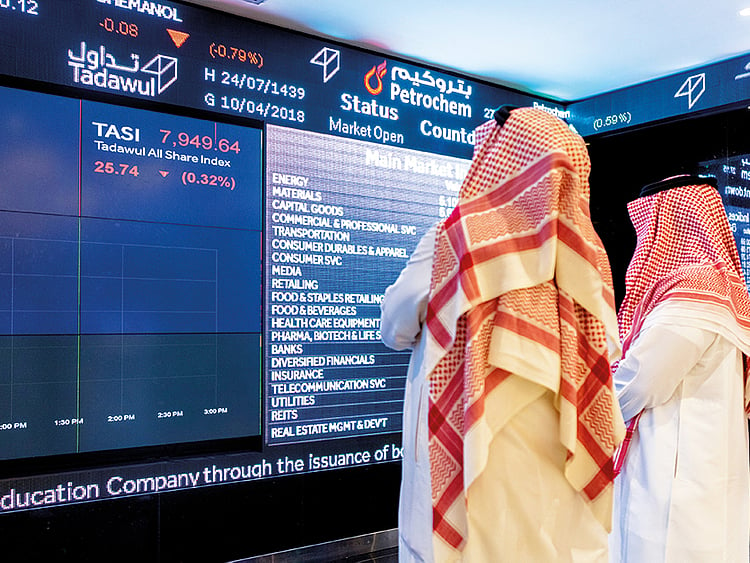GCC asset managers’ profitability under pressure from COVID and oil prices
Privatisation of government assets to attract more private capital

Also In This Package
Syrian olive trees put down roots in Kurdish Iraq
Mexico City's ancient lake reclaims scrapped airport
Abu Dhabi: 9 places where rents have dropped
Meet the Vietnamese billionaire helping COVID-hit world
Photos: Thai airways opens aircraft themed restaurant
Gulf Investors flood the London property market
Dubai: Asset management industry in the GCC countries are expected to face pressure on their profitability this year from COVID-related economic contraction, low oil prices and geopolitical uncertainties according to rating agency Moody’s
The profitability of asset managers in most Gulf Cooperation Council (GCC) countries will face moderate to high pressure over the next 12-18 months, reflecting the coronavirus crisis and an accompanying drop in oil prices, the rating agency said in a recent note.
Also Read
Another milestone with the link now lifted at iconic One Za'abeel 100 Meters above ground levelPandemic turns summer into European tourism's leanest seasonArchitectural marvel: Apple to open Marina Bay Sands storeLook: Airlines invent wild ways to make money with borders closed due to COVID-19Japan's tuna market, the world's largest, hit hard by coronavirus pandemic“The sector’s relatively low geographic and product diversification and regional geopolitical tensions will add further pressure,” said Vanessa Robert, VP-Senior Credit Officer at Moody’s.
Asset managers in the GCC countries are under pressure from a sharp drop in oil prices triggered by the coronavirus crisis, which has weighed on their assets under management (AUM). Moody’s expect the current weak oil prices to hold back economic growth and public spending across the region, with negative consequences for asset managers. Oil is also a key source of revenue for the sector’s investor base, which consists largely of local high net worth individuals, family offices, and government related institutions, including sovereign wealth funds (SWFs).
Oil correlation
GCC stock markets are strongly correlated with oil prices. When oil prices more than halved between 2014 and 2016 due to falling global demand and increased supplies of North American shale, GCC stock markets also fell sharply. This led in turn to a drop in GCC asset managers’ AUM, exacerbated by an investor flight to safe havens such as cash and gold. “When the coronavirus pandemic hit, GCC markets fell along with oil prices. However, during the recent oil price drop, markets fell less steeply than the oil prices, especially in Saudi Arabia due to ample liquidity injection by the Saudi Arabian Monetary Authority,” the rating agency said Robert.
Privatisation boost
Analysts expect GCC governments’ plans to reduce their economic dependence on hydrocarbon extraction and privatise certain state-owned assets should contribute to medium to long-term growth, and encourage the development of capital markets.
“Weak oil prices will hold back economic growth and public spending, with negative consequences for asset managers. However, GCC governments’ plans to privatise some state-owned assets should provide some offsetting stimulus,” said Robert.
Moody’s views GCC economic diversification initiatives, such as Saudi Arabia’s “Vision 2030” programme, as positive for the asset management indusrty. Vision 2030 aims to stimulate non-oil sector employment and growth via a programme of investment financed by the Public Investment Fund (PIF), Saudi Arabia’s sovereign wealth fund. In December 2019, the PIF raised $25.6 billion to fund further investment by selling a 1.5% stake in national oil company Saudi Aramco via an initial public offering (IPO).
Improving regulations
Financial regulations are at different stages of development in each GCC country, but are gradually raising transparency standards, supporting the development of capital and asset management markets. More rigorous regulation is supportive of asset managers’ asset collection and revenue growth, although it creates adjustment challenges for smaller operators.
“Recent regulatory changes have improved market efficiency, liquidity, and investor security, and will likely help attract foreign investment, despite the region’s comparatively high geopolitical event risk and still limited transparency. Saudi Arabia, UAE and Bahrain have been at the forefront of recent regulatory improvements. We expect Qatar, Kuwait and Oman to catch up over time,” said Robert.
Governance
GCC asset managers are under pressure to align their corporate governance policies with international standards following the failure of Dubai-based private equity firm Abraaj Group in June 2018. Abraaj Group went into administration after allegations that it had mismanaged clients’ money led prompted legal action from investors, triggering high redemption volumes.
The inclusion of leading regional markets including Saudi stocks in the MSCI emerging stock market index has encouraged foreign investment. As GCC markets open, Moody’s expect local asset managers will likely capitalise on their expertise in the region to attract foreign clients.
Sign up for the Daily Briefing
Get the latest news and updates straight to your inbox
Network Links
GN StoreDownload our app
© Al Nisr Publishing LLC 2025. All rights reserved.